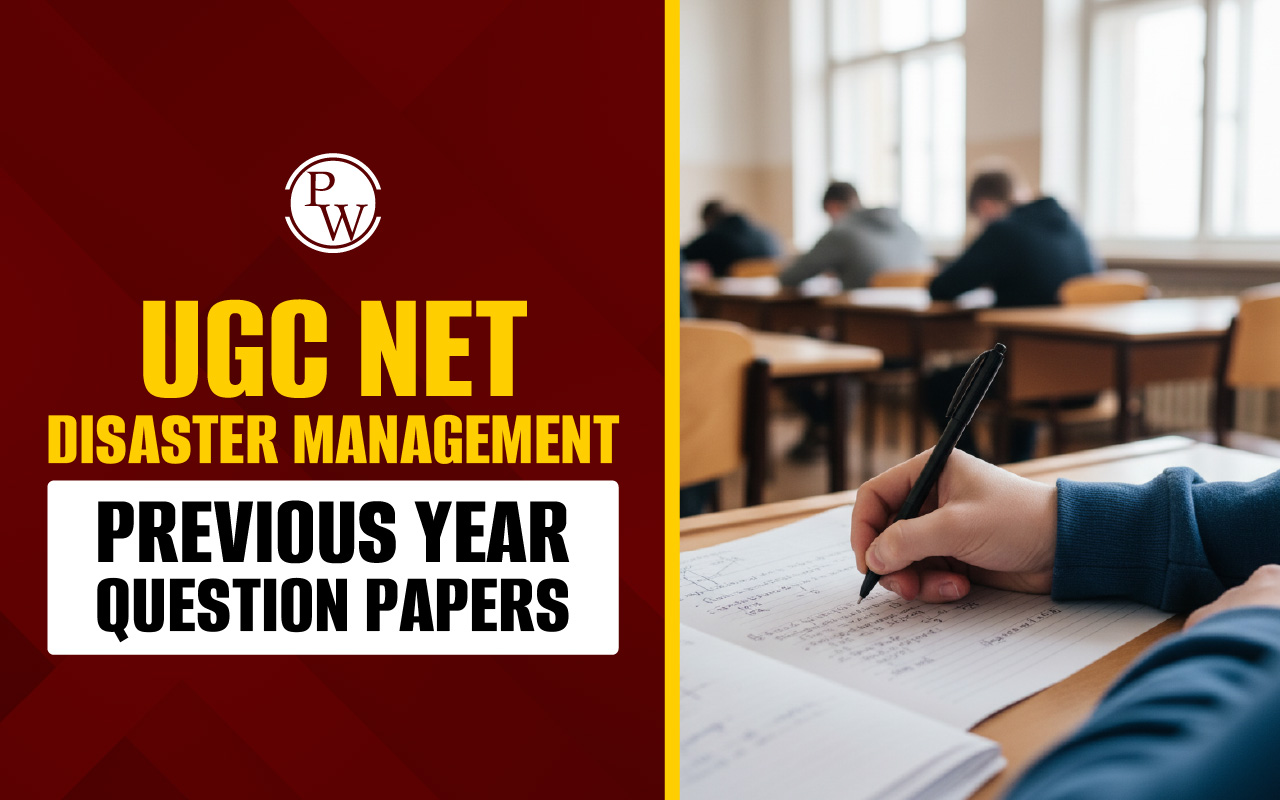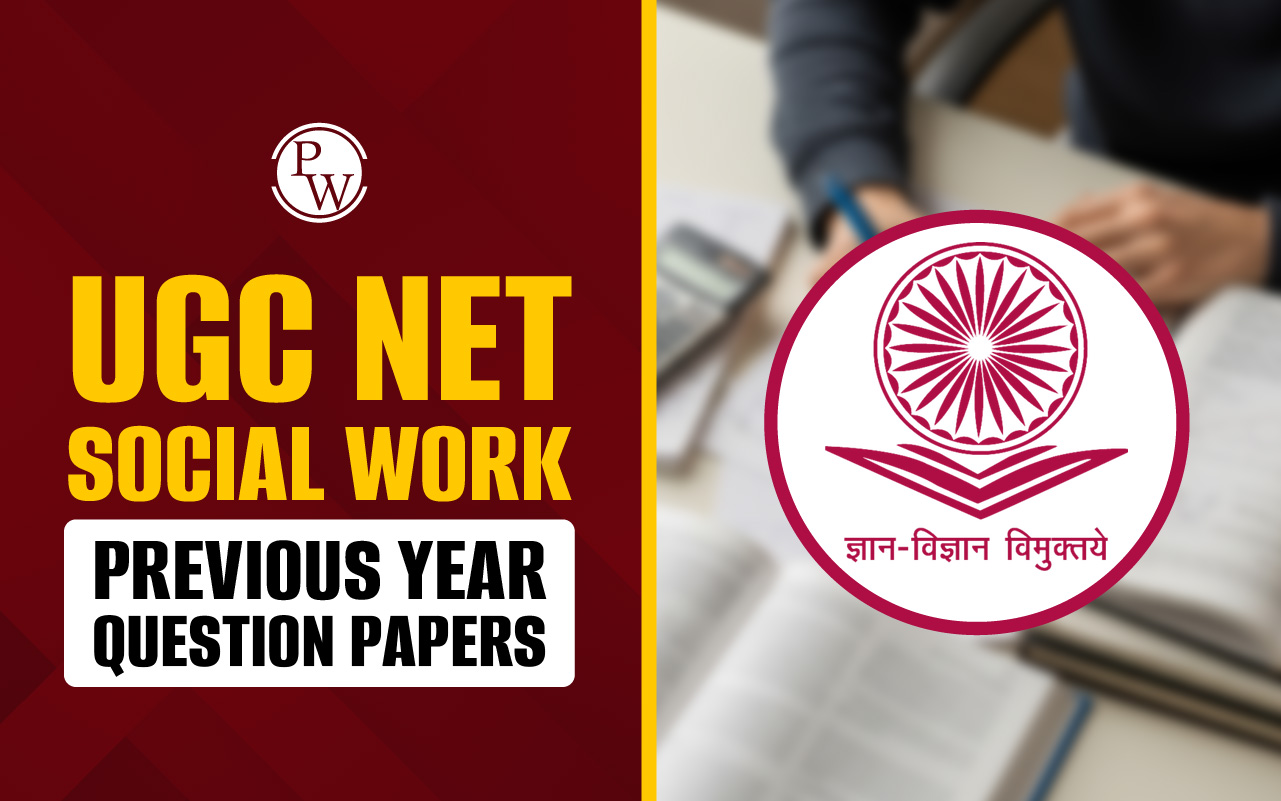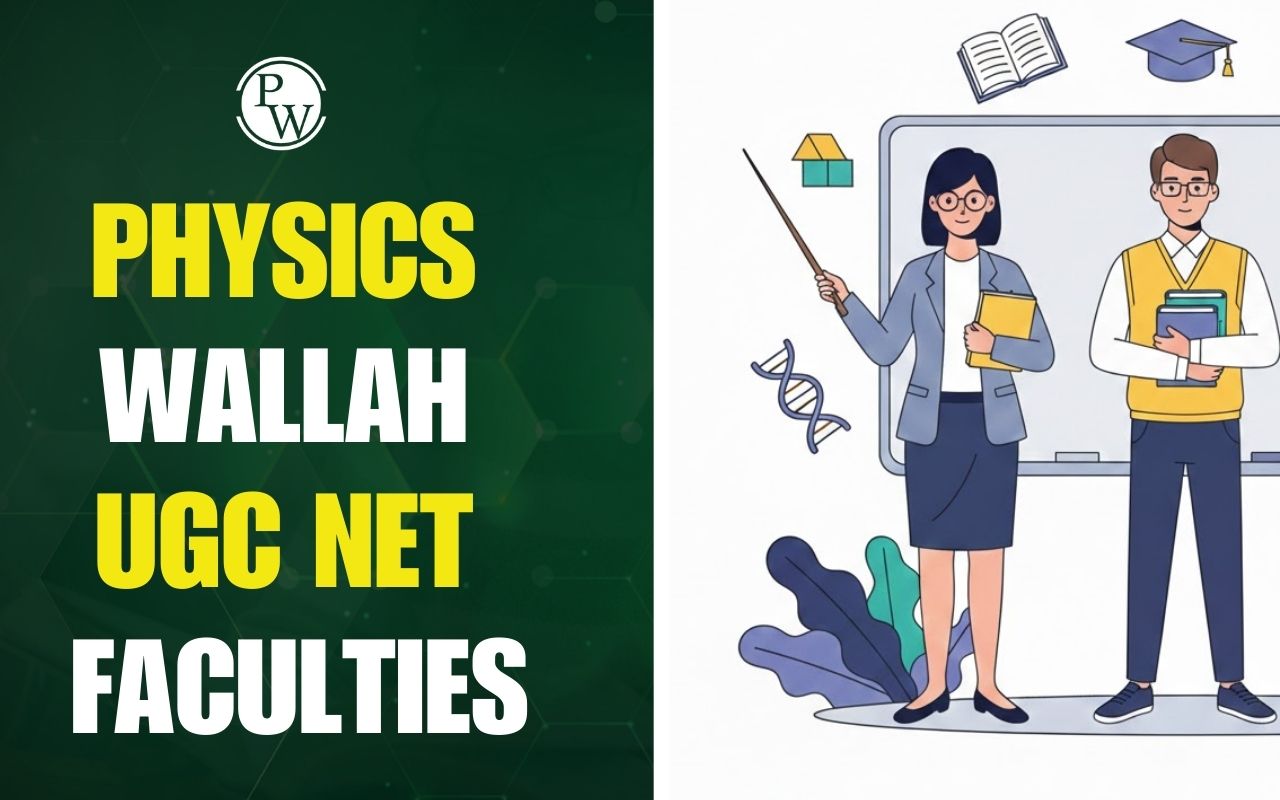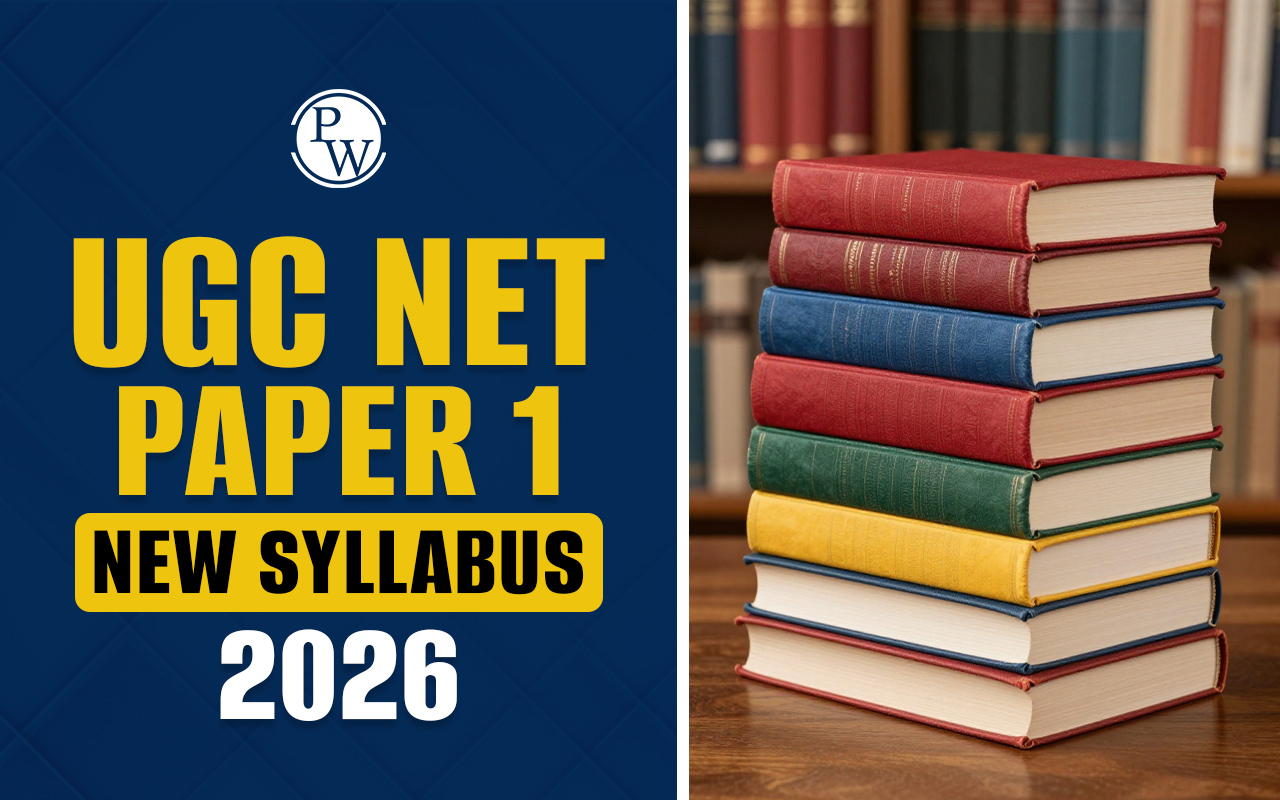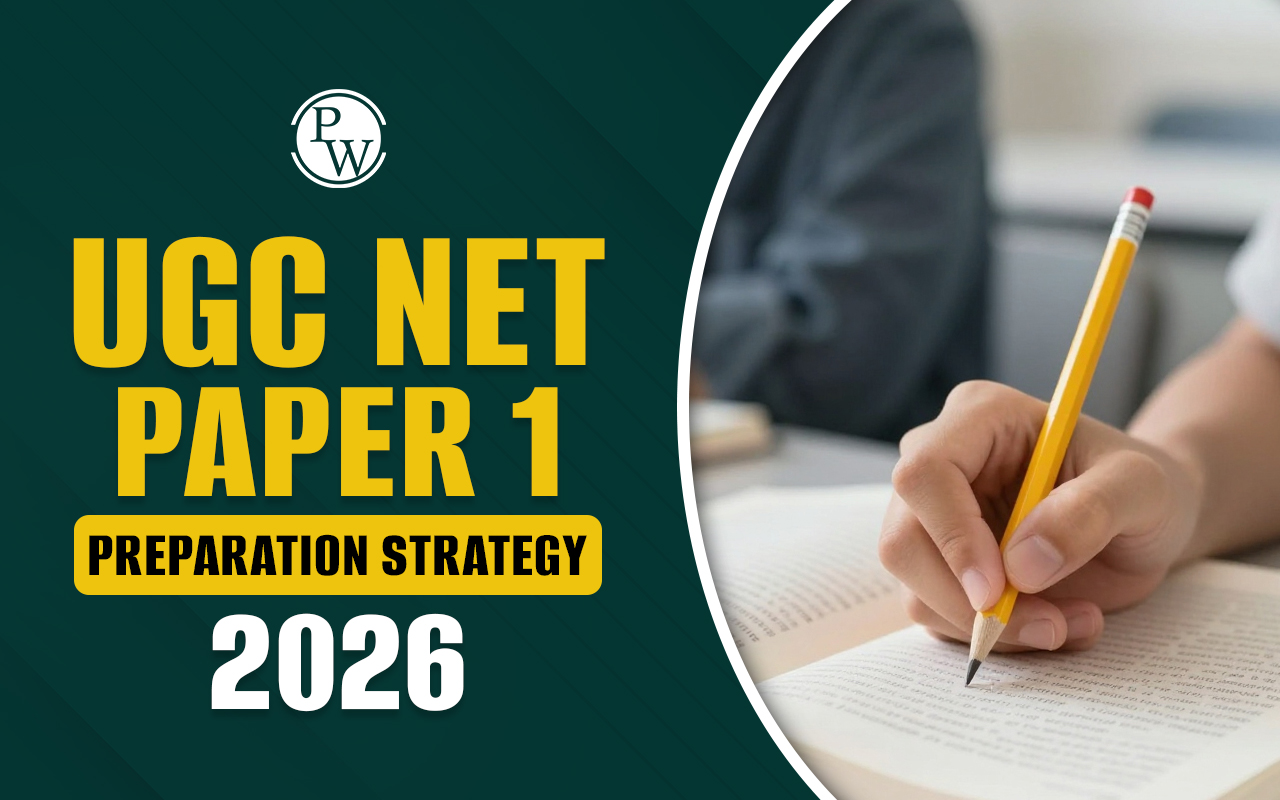
UGC NET English Syllabus 2025: The UGC NET English syllabus 2025 is designed to assess candidates’ knowledge in English literature and teaching aptitude. The UGC NET December 2025 session applications will be accepted from October 7 to November 7. The syllabus covers two papers, Paper 1 (general teaching and research aptitude) and Paper 2 (English literature topics). Candidates can download the official syllabus PDF to prepare effectively and familiarize themselves with the detailed exam pattern for a successful attempt.
UGC NET English Syllabus 2025
The UGC NET Syllabus 2025 is essential for candidates aiming to qualify in the December 2025 exam. It covers two papers: Paper 1 (Teaching and Research Aptitude) and Paper 2 (English Literature and Language). The syllabus includes topics like British Literature, Indian Writing in English, Literary Criticism, Linguistics, and Cultural Studies, among others. Candidates should study the detailed syllabus PDF to craft a focused preparation strategy. The notification for UGC NET December 2025 has been released on 7 October 2025 making it crucial for aspirants to stay updated and start their preparation early for success.
UGC NET English Syllabus 2025 Overview
The UGC NET 2025 exam is scheduled for June 2025. The exam will be conducted offline, with a duration of 3 hours. It consists of two papers: Paper 1, carrying 100 marks, and Paper 2, carrying 200 marks. There is no negative marking in the exam. Successful candidates can apply for Assistant Professor and Junior Research Fellowship (JRF) positions in universities and colleges across India.
| UGC NET English Syllabus 2025 Overview | |
| Conducting Body | National Testing Agency (NTA) |
| Exam Name | UGC NET 2025 |
| Post Category | UGC NET English Syllabus 2025 |
| Posts | Assistant Professor and Junior Research Fellowship (JRF) |
| UGC NET Exam Date 2025 | 21st June to 30th June 2025 |
| Exam Level | National |
| Exam Frequency | Twice a year |
| Mode of Exam | Offline |
| Medium of Exam | English and Hindi |
| Time Duration | 3 Hours |
| Number of Papers and Total Marks |
|
| Negative Marking | No Negative Marking |
| Official Website | https://ugcnet.nta.nic.in/ |
UGC NET English Syllabus 2025 PDF
The UGC NET English Syllabus for 2025 is now available for download below. The syllabus is divided into two papers, Paper 1 and Paper 2. Paper 1 focuses on the General Paper on Teaching & Research Aptitude. UGC NET Paper 2 focuses on English literature, language, and culture. Candidates can download the syllabus by clicking on the given download links.| UGC NET English Syllabus 2025 PDF | |
| UGC NET English Syllabus 2025 | Download PDF Links |
| UGC NET English Syllabus 2025 (Paper 1) | Download PDF |
| UGC NET English Syllabus 2025 | Download PDF |
UGC NET English Syllabus 2025 Paper 1
The UGC NET English Syllabus 2025 Paper 1 assesses candidates' teaching and research capabilities, focusing on their aptitude in these areas. Here are the details:- Unit I: Teaching Aptitude - Concept, objectives, and levels of teaching, learner characteristics, and factors affecting teaching, etc.
- Unit II: Research Aptitude - Meaning, types, and characteristics of research, as well as different research methods, etc.
- Unit III: Comprehension - Candidates will demonstrate their ability to comprehend and answer questions based on a given passage.
- Unit IV: Communication - Meaning, types, and characteristics of communication, including effective verbal, non-verbal, intercultural, and group communication, etc.
- Unit V: Mathematical Reasoning and Aptitude - Mathematical aptitude, including concepts like number series, letter series, fractions, time, distance, ratio, proportion, percentage, profit and loss, interest, and averages.
- Unit VI: Logical Reasoning - Argument structures, deductive and inductive reasoning, analogies, Venn diagrams, Indian logic, and various inference techniques.
- Unit VII: Data Interpretation - Acquire, classify, and interpret quantitative and qualitative data represented graphically or through mapping, understanding the implications of data in governance.
- Unit VIII: Information and Communication Technology (ICT) - ICT fundamentals, internet basics, digital initiatives in higher education, and the role of ICT in governance.
- Unit IX: People, Development, and Environment - Human-environment interaction, environmental issues, impacts of pollutants on health, natural and energy resources, natural hazards, environmental protection measures, etc.
- Unit X: Higher Education System - History and evolution of higher education in India, various learning programs, professional and technical education, value education, environmental education, and policies, governance, and administration in higher education institutions, etc.
UGC NET English Syllabus 2025 Unit Wise
The UGC NET English syllabus consists of two papers, Paper 1 and Paper 2, with 10 units each. Paper 1 is mandatory for all candidates appearing in the examination, while Paper 2 is designed to evaluate the literary skills of the candidates. Here's an overview of the unit-wise syllabus for UGC NET 2025.- Unit –I : Drama
- Unit –II : Poetry
- Unit –III : Fiction, short story
- Unit –IV : Non-Fictional Prose
- Unit –V : Language: Basic concepts, theories and pedagogy. English in Use.
- Unit –VI : English in India: history, evolution and futures
- Unit –VII : Cultural Studies
- Unit –VIII : Literary Criticism
- Unit –IX : Literary Theory post World War II
- Unit –X : Research Methods and Materials in English
UGC NET English Exam Pattern 2025
The UGC NET 2025 exam consists of two papers. Paper 1 and Paper 2. UGC NET Paper 1 has 50 questions, and the maximum mark for this paper is 100. The duration of this paper is 3 hours. UGC NET English Paper 2 focuses on the English language and consists of 100 questions. The maximum mark for this paper is 200. Here is an overview of UGC NET English Exam Pattern 2025.| UGC NET English Exam Pattern 2025 | ||||
| Paper | Sections | Number of Questions | Maximum Marks | Duration |
| Paper 1 | Teaching Aptitude, Research Aptitude, Reading Comprehension, Communication, Reasoning (including Maths), Logical Reasoning, Data Interpretation, Information & Communication Technology (ICT), People & Environment, and Higher Education System | 50 | 100 | 3 Hours |
| Paper 2 | English | 100 | 200 | |

